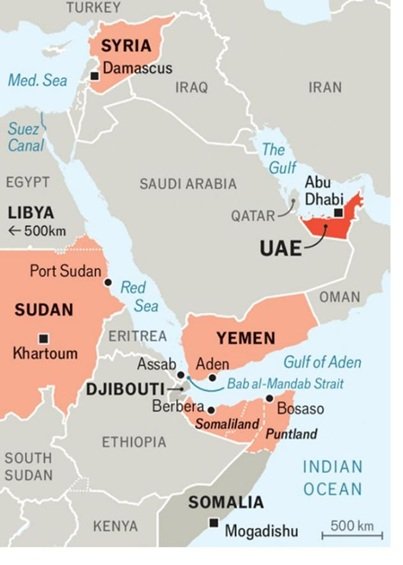By WardheerNews
Since the collapse of the Somali state in 1990, Somalia has endured decades of conflict and political instability, further complicated by increasing foreign involvement—with both constructive and detrimental consequences. Prior to the approval of the African Union (AU) peacekeeping force in October 2007, significant debate arose over the composition of the force, particularly regarding the inclusion of neighboring nations, often referred to as “frontline states.” Many Somalis opposed their participation, yet this resistance ultimately proved unsuccessful, with Ethiopia, Kenya, and Djibouti playing major roles in the AU mission.
The African Union Mission in Somalia (AMISOM) was officially deployed in March 2007, following authorization by the UN Security Council on February 21 of that year. Now, nearly two decades since its inception, AMISOM has undergone multiple phases of evolution. Meanwhile, Somalia’s geopolitical landscape has shifted dramatically, with Gulf States—particularly the United Arab Emirates and Qatar—emerging as key players alongside traditional regional actors. Their growing influence has added another layer of complexity to Somalia’s path toward stability.
The United Arab Emirates has steadily strengthened its influence over key regional governments in Somalia, particularly in Puntland, Jubaland, and the self-declared republic of Somaliland. Through a combination of economic investments, military cooperation, and diplomatic engagement, the UAE has positioned itself as a major power broker in the Horn of Africa. In Somalia, its involvement ranges from port development and infrastructure projects to security sector support, often aligning with its broader geopolitical and economic interests in the Red Sea and Gulf of Aden
Amid this growing UAE influence, in a baffling turn from its usual depth, The Economist, the globally respected London-based magazine, has published a report that left many in Somalia—and particularly in Puntland—stunned by its oversimplification and questionable framing.
Titled “The Emirates promotes unity in its country and division in foreign countries,” . The article alleges that the Emirates is assisting the South Yemen Transitional Council in a resource-driven mission and claims the Gulf state has established ties with Somaliland and Puntland, referring to both as “republics separated from Somalia.” This is not just factually questionable—it dangerously undermines the nuanced constitutional relationship between Somalia’s Federal Member States and the central government.
The magazine attempts to sketch the United Arab Emirates’ regional involvement but instead paints Puntland with broad, unverified strokes. Describing the region as part of a “harvesting process” by the Emirates, the piece claims that Bosaso, Puntland’s commercial capital, hosts an Emirati military base. No context, no citations—just an assertion hanging in the air.
It also states UAE -The ruling family is keen to curb the role of Qatar and Turkey, which back Islamist parties. They also want to carve out their own sphere of influence distinct from Saudi Arabia.
Then there’s the map
In a particularly curious editorial choice, the territory under the SSC-Khatumo (SSCK) administration is distinctly shaded—signaling, perhaps intentionally, that neither Puntland nor Somaliland politically dominates the area. This kind of visual insinuation, without explanation, risks misleading readers unfamiliar with the realities on the ground.
Equally glaring is the report’s silence on the nature of the Puntland-Emirates relationship—a subject that has remained opaque and politically sensitive. President Said Abdullahi Deni’s administration has not made its position clear, and the timing of The Economist’s narrative could not be more consequential. In Puntland, where political landscapes are as complex as they are volatile, such a portrayal could trigger domestic backlash and renewed scrutiny of foreign ties.
For a publication long regarded as a global authority on economics and politics, The Economist’s reporting on Somalia in this instance feels alarmingly out of touch. If the goal was to prompt discussion, it has succeeded—but not for the reasons its editors might have hoped.
Until Puntland officially responds, the silence remains—but so does the damage of a poorly framed narrative.
WardheerNews


Leave a Reply